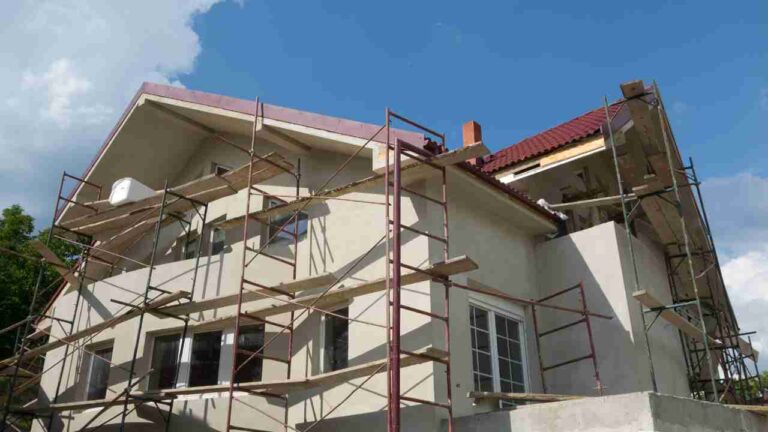When it comes to construction projects, there’s no denying the unpredictable nature of things. These events can wreak havoc on even the most meticulously planned projects, from relentless storms and raging fires to theft. This article looks into the impact of extreme weather events, fires, theft, and water damage on construction projects for contractors and subcontractors. Additionally, it will explore the importance of builders risk insurance as a vital tool for managing weather-related risks and safeguarding project success.
Understanding the Risks
Extreme weather events can be a significant threat to construction projects, presenting a myriad of challenges for builders and subcontractors. Storms, in particular, can cause extensive damage to construction sites, leading to costly delays and setbacks. Heavy rainfall can flood excavation sites, compromising foundations and halting progress. High winds can topple structures and scatter debris, putting workers at risk and requiring extensive cleanup efforts.
But storms aren’t the only concern. Fires, whether sparked by natural causes or human error, can engulf construction sites in a matter of minutes, destroying materials, equipment, and progress made. The aftermath of a fire can be devastating, requiring not only the rebuilding of structures but also dealing with insurance claims and legal liabilities.
Water damage is another formidable foe in the construction industry. Whether from burst pipes, faulty plumbing, or natural disasters like floods, water infiltration can cause widespread damage to buildings, leading to mold growth, structural weakening, and health hazards.
And don’t forget about theft. Construction sites, often filled with valuable materials and equipment, are prime targets for thieves looking to make a quick profit. From copper wiring to heavy machinery, the loss of assets due to theft can result in significant financial losses and project delays.
Strategies for Resilience
So, what can contractors and subcontractors do to mitigate the risks associated with these events? Here are some strategies to consider:
Proactive Planning: Anticipating potential hazards and developing comprehensive management plans is key to minimizing the impact of extreme weather events. Conducting thorough site assessments, implementing robust security measures, and establishing emergency protocols can help mitigate risks and ensure swift responses in times of crisis.
Investing in Resilient Design: Building resilient structures that can withstand the forces of nature is essential for minimizing damage and ensuring the longevity of construction projects. Incorporating features such as reinforced foundations, impact-resistant materials, and proper drainage systems can help mitigate the effects of storms, fires, and water damage.
Adopting Technology: Embracing innovative technologies such as weather monitoring systems, remote surveillance cameras, and cloud-based project management tools can provide real-time insights into site conditions and enhance communication and coordination among project stakeholders. These technologies can help identify potential hazards early on and facilitate timely interventions to mitigate damage.
The Importance of Builders Risk Insurance
Builders risk insurance plays a pivotal role in safeguarding construction projects against the unpredictable whims of weather and other hazards. By offering coverage for property damage, theft, and other losses, this type of insurance helps mitigate financial uncertainties and ensure project continuity in the face of adversity. From small-scale renovations to large-scale developments, having adequate insurance coverage is the difference between being resilient and suffering significant financial losses.
Wrapping Up
In conclusion, extreme weather events pose formidable challenges for contractors and subcontractors involved in construction projects. By adopting proactive planning strategies, investing in resilient design, leveraging technology, and securing appropriate insurance coverage, construction professionals can enhance the resilience of their projects and mitigate the risks associated with unpredictable natural phenomena. In an industry where uncertainty is the only constant, resilience is not just a virtue—it’s a necessity for success.







